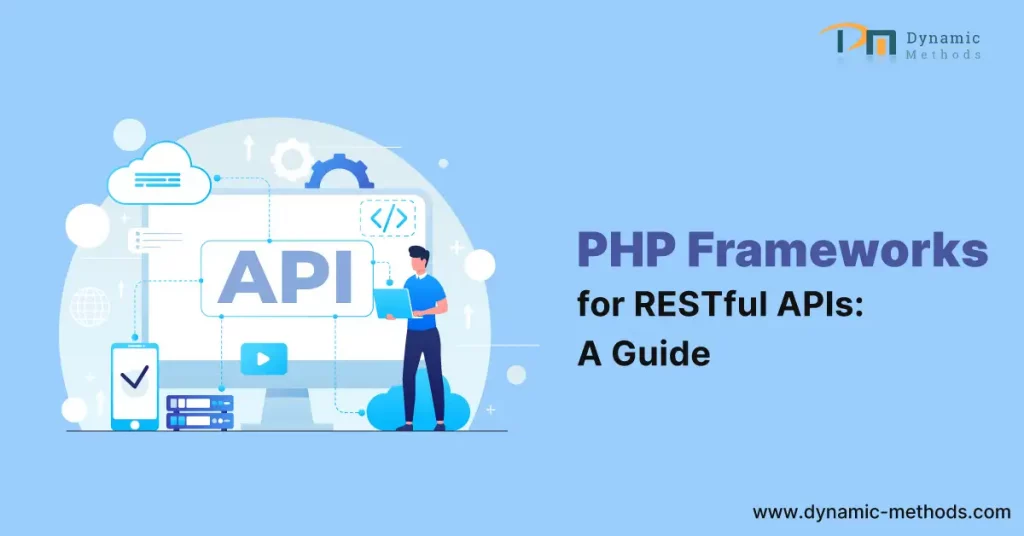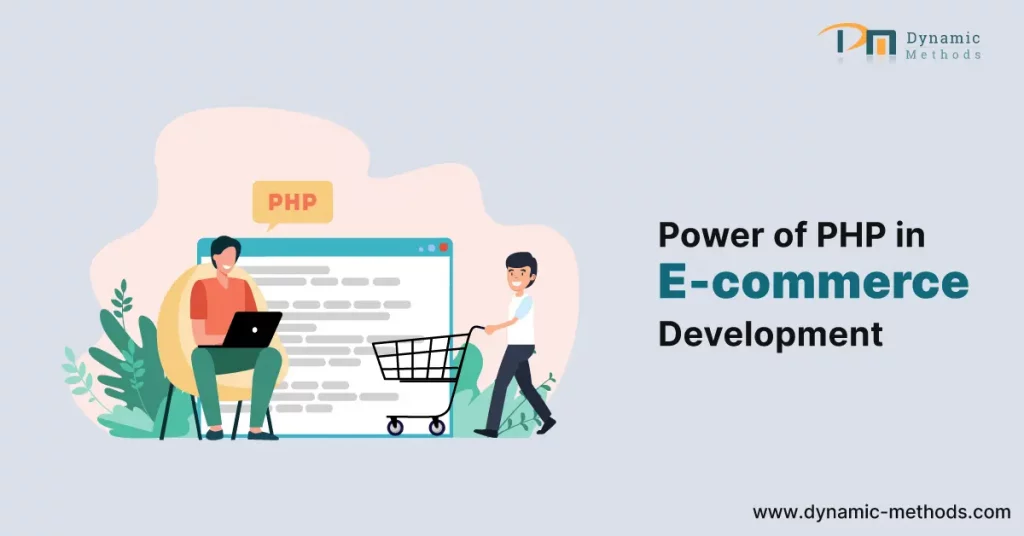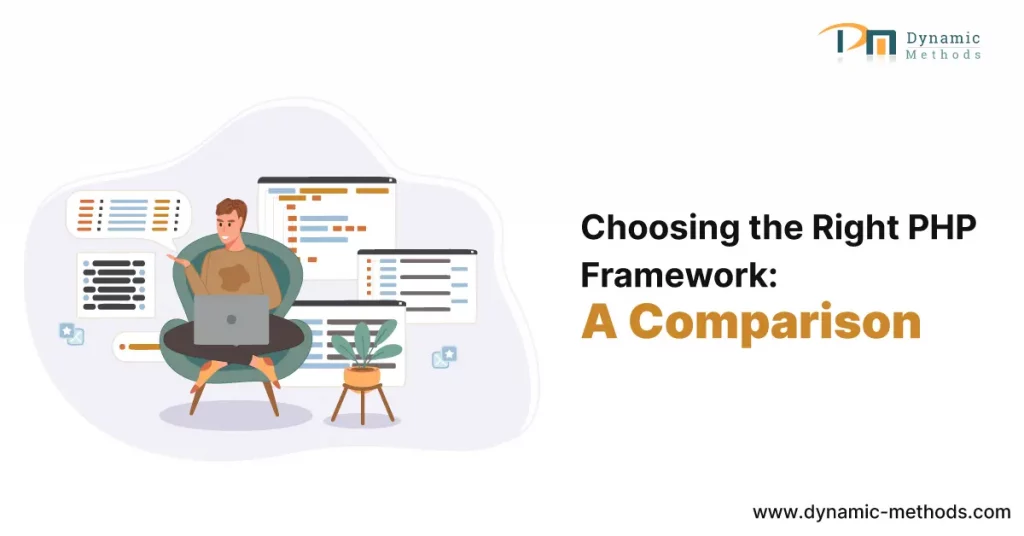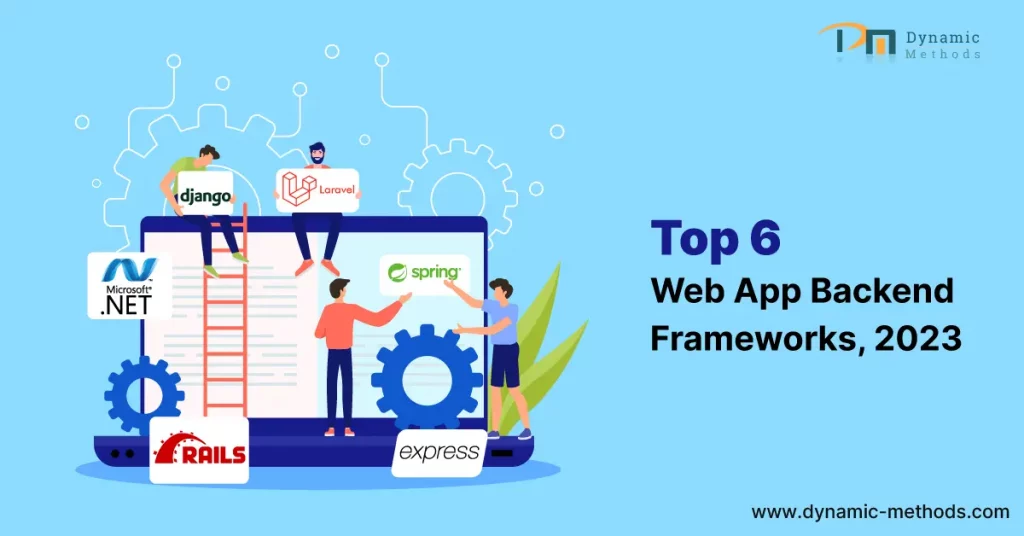PHP Frameworks: The Future, Emerging Trends, and Ground-breaking Innovations
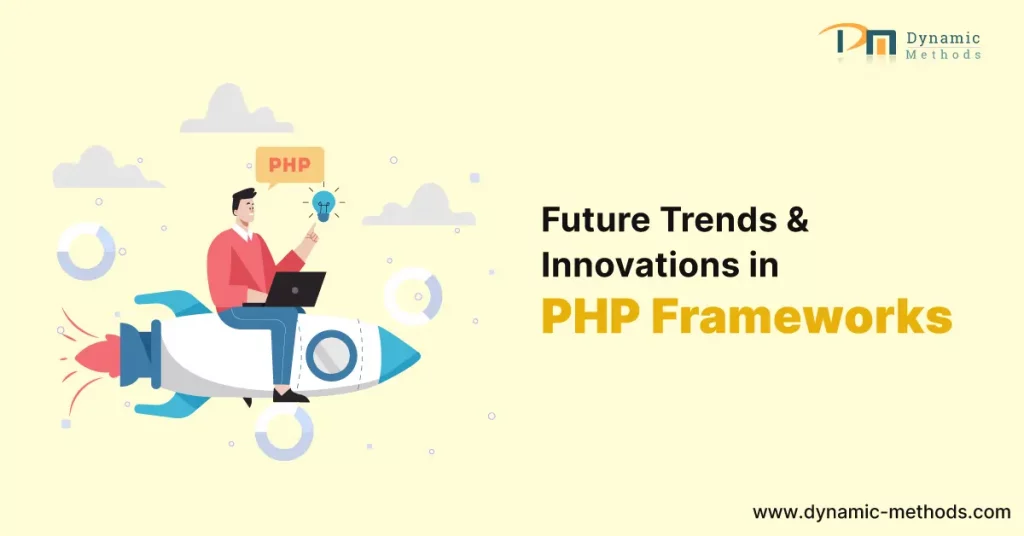
In the ever-evolving world of web development, best PHP frameworks continue to be powerful weapons in the arsenal of developers, paving the way to create complex web applications.
The future of PHP frameworks is being shaped and redefined by a series of pioneering trends and innovations. Come, let’s explore the future horizon of PHP frameworks together.
Unraveling PHP Frameworks
PHP frameworks, in essence, are toolkits that guide developers in crafting dynamic web applications. They are equipped with pre-packaged modules that handle mundane coding tasks, letting developers put their focus on the unique aspects of their applications. Frameworks introduce structure to web development, keeping the code organized, development process rapid, and scalability seamless.
Today's PHP Framework Landscape
Today, the PHP frameworks realm is largely commanded by robust tools such as Laravel, Symfony, and CodeIgniter. Their expertise in building enterprise-level applications, e-commerce platforms, and content management systems is well-proven.
However, the advent of cutting-edge technologies is changing the game, promising more agile and efficient solutions for web development.
The Significance of PHP Frameworks in Web Development
PHP frameworks simplify the web application development process by automating common tasks. They are the champions of code reusability and maintainability, reducing development time significantly.
With inherent security features and database access support, PHP frameworks enhance the dependability and robustness of web applications, enabling developers to innovate, not just create
A Peek into the Future of PHP
As we shift our gaze to the future of PHP, it’s evident that the language and its frameworks are evolving to accommodate emerging trends in web development. Ground-breaking innovations such as Artificial Intelligence (AI), the Internet of Things (IoT), and cloud computing are reshaping the future of PHP frameworks.
The forthcoming era promises more efficient, scalable, and secure PHP frameworks that can handle complex applications and new-age technologies.
Innovation Wave in PHP Frameworks
A series of advancements are emerging within PHP frameworks. We are witnessing the rise of headless CMS frameworks, which offer greater flexibility by decoupling the frontend and backend of web applications.
Additional advancements include the inclusion of machine learning capabilities, the adoption of GraphQL over RESTful APIs, and an increased emphasis on clean coding and test-driven development.
Emerging Stars in PHP Frameworks
The PHP framework ecosystem is being invigorated by some new and exciting players. Frameworks like Phalcon, FuelPHP, and Yii are earning admiration for their robust features, ease of use, and performance.
They are effectively incorporating the latest trends in web development, showing great promise for the future of PHP frameworks.
The AI Revolution in PHP Frameworks
AI is revolutionizing every aspect of technology, including PHP frameworks. Future PHP frameworks will likely integrate AI capabilities, such as machine learning algorithms, to automate tasks, optimize performance, and offer more intelligent functionalities.
AI could also be used to analyze coding patterns and detect bugs, making PHP frameworks more reliable and efficient.
IoT’s Impression on PHP Frameworks
IoT brings a unique challenge to web developers due to its capability to manage multiple devices and data streams. Future PHP frameworks will have to accommodate these demands, possibly through features like real-time data processing, robust security measures, and efficient handling of simultaneous connections.
Cloud Computing and PHP Frameworks: An Inseparable Future
Cloud computing has transformed the hosting and accessibility of web applications. Modern PHP frameworks need to embrace this change and be cloud-optimized, supporting seamless deployment and scalability in cloud environments.
This necessitates improved support for containerization technologies like Docker and Kubernetes, and better compatibility with cloud platforms such as AWS, Google Cloud, and Microsoft Azure.
Merging PHP Frameworks and DevOps
DevOps practices are indispensable for modern web development. PHP frameworks will need to facilitate DevOps integration, enabling continuous integration, delivery, and automated testing. This will ensure smoother deployments, quicker delivery of features, and enhanced application reliability.
Elevating Security in Future PHP Frameworks
In the face of escalating cyber threats, security becomes paramount for web applications. Future PHP frameworks will need to prioritize security, offering built-in protections against common vulnerabilities.
We can expect features like secure user authentication, data encryption, input validation, and protection against Cross-Site Request Forgery (CSRF).
Mobile Optimization: A Non-negotiable in PHP Frameworks
With the rise in mobile usage, developing mobile-optimized web applications is critical. Future PHP frameworks will have to concentrate more on mobile optimization, ensuring that web applications offer a seamless user experience across different devices and screen sizes.
A Beautiful Blend: PHP Frameworks and UX Design
As user experience (UX) becomes a key differentiator for web applications, PHP frameworks will need to aid in creating intuitive and engaging interfaces. This could mean better support for frontend technologies and design principles that enhance usability and accessibility.
PHP Frameworks and Microservices: A Convergence
The microservices architecture, owing to its scalability and maintainability advantages, is gaining traction. Future PHP frameworks are likely to provide better support for developing microservices, enabling developers to build modular and scalable web applications.
Challenges Looming over PHP Frameworks
Despite the exciting innovations, PHP frameworks face a few hurdles such as adapting to new technologies, maintaining backward compatibility, and ensuring superior performance. Overcoming these challenges will be pivotal for the future success of PHP frameworks.
Quantum Computing: A Potential Game-Changer for PHP Frameworks
Quantum computing, still in its nascent stage, carries immense potential for web development. PHP frameworks will need to be ready for this paradigm shift, which could usher in unprecedented computational capabilities and alter our approach to web development.
Blockchain and PHP Frameworks: A New Intersection
Blockchain technology is making waves across various industries, including web development. The decentralized and secure nature of blockchain could influence the future of PHP frameworks, with potential applications in secure transactions, smart contracts, and decentralized web applications.
Best Practices for the Future of PHP Framework Development
As PHP frameworks evolve, developers will need to adopt the best practices to exploit their full potential. This includes adhering to clean coding principles, implementing test-driven development, utilizing DevOps practices, and staying updated with the latest trends in web development.
The Future of PHP Frameworks: A Green Perspective
With environmental sustainability becoming a global concern, the tech industry has a role to play in reducing carbon footprints. Future PHP frameworks could contribute by promoting efficient code that reduces server load, and thus, energy consumption.
Bracing for the Future of PHP Frameworks
For developers, getting ready for the future of PHP frameworks requires constant learning and adaptation. Embracing new technologies, methodologies, and tools will be key to thriving in the changing landscape of PHP frameworks.
Conclusion
The future of PHP frameworks is radiant with thrilling trends and innovations. As they continue to evolve with new technologies and methodologies, they harbor immense potential for the future of web development.
Staying ahead of these advancements will enable developers to harness PHP frameworks to their full potential, crafting web applications that are robust, efficient, and innovative. So, let’s embrace this exciting future together.
Did this post inspire you? Was it insightful? Do you have any thoughts or questions on the future of PHP frameworks, then Contact us at Dynamic Methods are the perfect company for you.
Feel free to comment below. Share your ideas and let’s keep the discussion going. Also, do remember to like and share this post. Let’s spread the knowledge!
FAQs
1. Why are PHP Frameworks crucial in web development?
PHP frameworks automate routine tasks in web development, speeding up the development process. They promote code reusability and maintainability, enhancing the robustness and reliability of web applications.
2. What emerging trends are defining the future of PHP Frameworks?
Integration of AI and machine learning, handling IoT demands, support for cloud computing and DevOps, increased focus on security, and mobile optimization are defining the future of PHP frameworks.
3. What challenges might PHP Frameworks face in the future?
Adapting to new technologies, maintaining backward compatibility, ensuring performance, and meeting the evolving demands of web development are potential challenges for PHP frameworks.
4. How will AI influence the future of PHP Frameworks?
AI can be integrated into PHP frameworks to automate tasks, enhance performance, and provide intelligent functionalities. AI can also help analyze coding patterns and detect bugs, enhancing the framework’s reliability.
5. How will IoT impact the future of PHP Frameworks?
IoT demands handling multiple devices and data streams. PHP frameworks will need to support real-time data processing, robust security protocols, and efficient handling of concurrent connections to accommodate these demands.
6. What role will PHP Frameworks play in cloud computing?
PHP frameworks will need to support seamless deployment and scalability in cloud environments. This involves better support for containerization technologies and compatibility with different cloud platforms.
